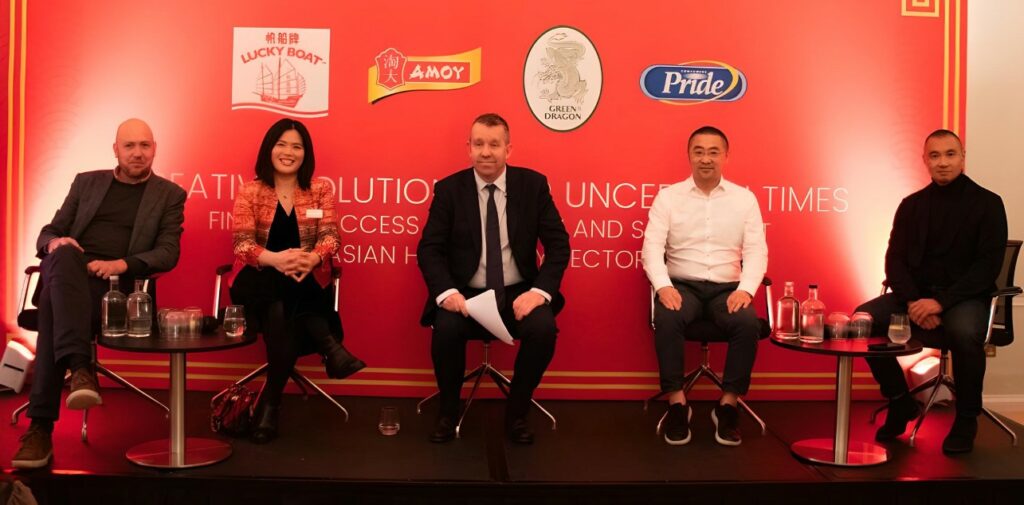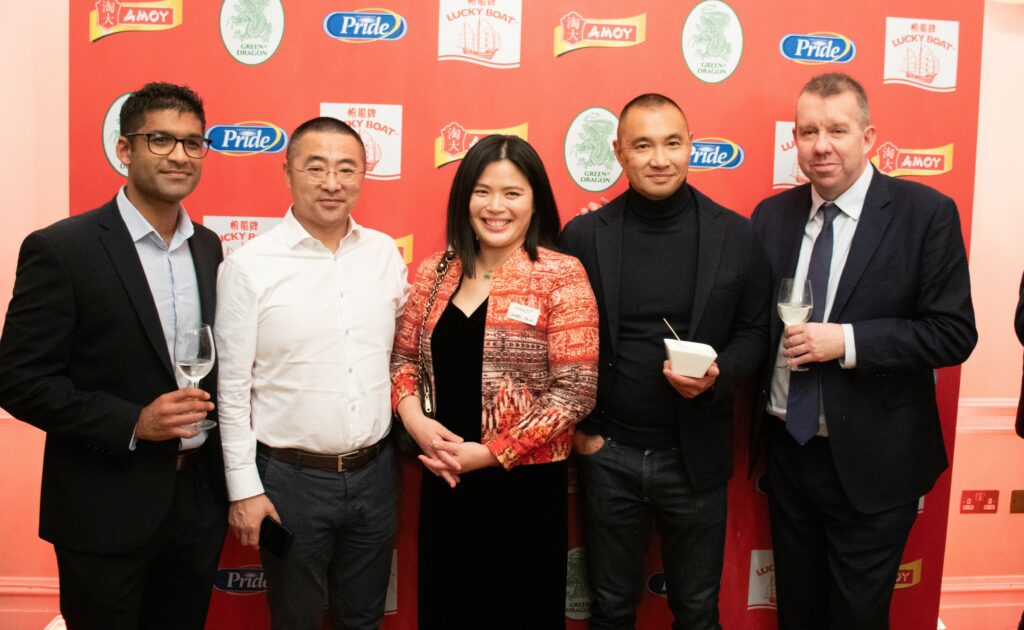Thriving – not just surviving – in the East and Southeast Asian hospitality sector

The Oxford Cultural Collective is working with Westmill Foods on a project to support hospitality businesses in the East and Southeast Asian sector.
As the restaurant sector continues to face severe challenges, a group of renowned hospitality operators recently shared insights on how to thrive (not just survive) in uncertain times.
Hosted by Westmill Foods, an audience of chefs, entrepreneurs and business leaders gathered at Asia House in London on 22nd November to hear from Andy Kwok, Director of The Good Earth restaurant group, Mandy Yin, author, broadcaster and founder of Sambal Shiok Laksa Bar and XueFeng Bai, UK Managing Director of Din Tai Fung, alongside James Stagg, Editor of The Caterer and Don Sloan of Oxford Cultural Collective as panel chair. As well as being one of Europe’s largest specialist food suppliers to the restaurant and takeaway sectors (with brands including Lucky Boat noodles, Amoy sauces, Pride oil and Green Dragon rice), Westmill is seeking to support business owners through information sharing and networking opportunities.
Westmill outlined the results of their own extensive consumer and industry research, including on current dining trends, which could inform business tactics. Whilst Chinese remains the most popular non-European cuisine for UK consumers, Chinese restaurant and takeaway volume of orders are down by 10.5% versus a year ago, compared with a decline of 7.4% in the sector as a whole. The cost-of-living crisis is having an impact across the board, but the relative popularity of Chinese cuisine is being affected by the growing range of restaurant products on offer, representing many different Asian nations, and by perceptions that Chinese dishes are ‘not very healthy’.
Panellists noted that in the East and Southeast Asian hospitality sector, which is dominated by family-owned independent restaurants, there may be a tendency to maintain traditional business models. In a highly competitive and unpredictable market, they suggested more strategic thinking is required.
Restaurants that maintain success, even during difficult times, are those which have a loyal base of repeat customers. For Andy Kwok, this requires an ‘emotional connection’ with guests, which The Good Earth group has built through close relationships with those in the communities surrounding each of its restaurants. The welcome offered to guests has an ease and authentic warmth, reflecting long-term staff members’ confidence and familiarity, which reassures regulars and first-time guests alike.
Recognising what guests are now looking for is also key. Mandy Yin’s customers are well-informed, curious and keen to learn about ingredients and flavours, and about the cultural origins and significance of dishes. This requires a level of knowledge and fluency from staff, developed through engaging training, which in turn makes their roles more interesting and rewarding.
The character of relationships with guests and followers was a recurring theme. Whilst Mandy has no marketing budget, she treats social media as a means of actively connecting with existing and potential customers. Rather than a ‘glossy’ image, she gives an honest portrayal of life as a chef and restaurateur, including challenges as well as achievements, to which followers can relate.
For XueFeng Bai, delivering consistent quality is a priority. Din Tai Fung is one of the world’s most recognisable Chinese restaurant brands, with over 170 branches in fourteen countries. Customers are loyal to the brand, often across international boundaries, reflecting expectations they will receive a comparable experience no matter where they dine. Any drop in quality has a legacy for the entire company. And as XueFeng notes, his greatest asset in this respect is his staff, who thrive if the organisational culture is positive.

Pratim Mistry of Westmill Foods with XueFeng Bai (Din Tai Fung), Mandy Yip (Sambal Shiok), And Kwok (The Good Earth) and Don Sloan (OCC)
The value of building profile and connections within the wider hospitality industry is often overlooked. As Editor of The Caterer, James Stagg has a unique overview, and he recommends East and Southeast Asian hospitality operators become active members of professional networks, to enhance their reputation as ‘employers of choice’, helping to attract talented staff from many different backgrounds, and providing opportunities for creative exchange of ideas. He also observed that being shortlisted and winning industry-wide awards (such as the Cateys or Golden Chopsticks Awards) can boost staff morale and develop company profile.
Insights also came from audience members. Why, panellists were asked, is the growing consumer interest in the provenance and seasonality of ingredients evident in ‘mainstream’ hospitality’, not a priority in East and Southeast Asian restaurants? Could this be the next development for progressive players in the market?
This Westmill event is the first in a series, being held with support from the Oxford Cultural Collective, which will provide practical guidance for South and Southeast Asian chefs and restaurateurs.
Key messages from panel discussion:
- Nurture the loyalty of your customers, to secure repeat business.
- Shape a distinctive ‘story’ for your restaurant, to which customers can relate.
- Remember your staff are your greatest ambassadors.
- Use social media to deliver authentic insights into you and your business.
- Become an active member of professional networks, and aim to win awards!
- Consider your menu – does it need to evolve to better engage your market?
- Get the basics right – quality and consistency of food and service.
- Offer ‘value for money’, no matter the ‘level’ of your restaurant.
